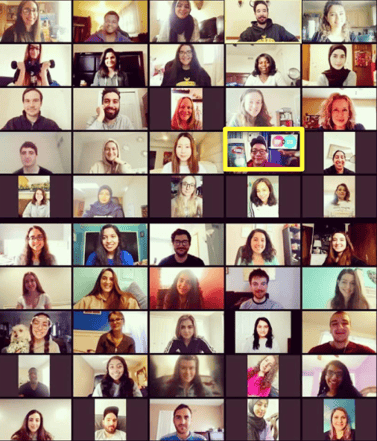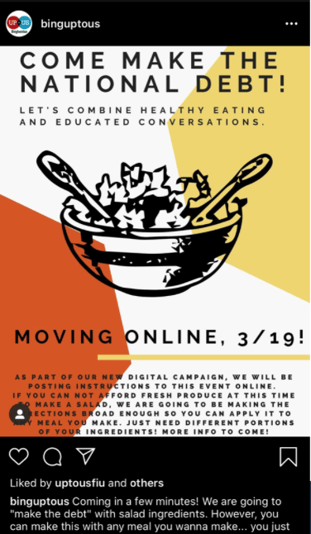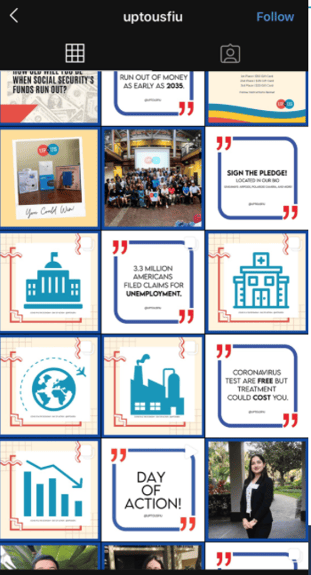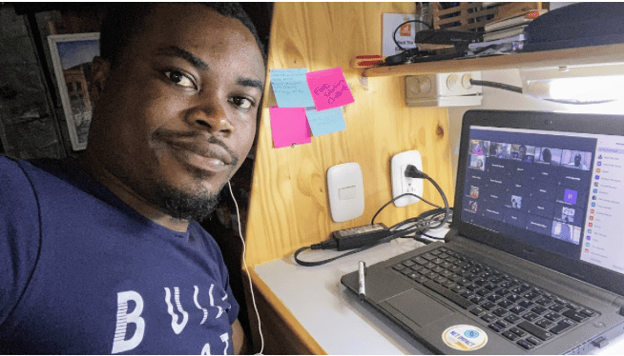2020 has been a year of surprise, adaptation, and change. This year’s spring teams experienced this as the Up to Us competition went digital, shifting the way that the competition is typically held. Despite the obstacles in their way, our spring teams were able to adapt and create meaningful digital campaigns that raised awareness on the national debt. While all of the teams employed innovative strategies and made an impact on their communities, 4 teams stood out and received Spring Awards of Distinction.

Wayne State University

As organizations, schools, and companies around the country found new ways to meet and collaborate, Zoom became the most popular form of digital collaboration. Wayne State University in Detroit, Michigan used this to their advantage by attending different virtual classes to present how COVID-19 has affected the economy. The team talked about a variety of topics such as the CARES Act, spending habits of Americans during the pandemic, unemployment, and the burden of the American healthcare system. By engaging a wide audience and exploring a variety of important, timely topics, the Wayne State University team was able to make the national debt relevant and personal to their community.
Binghamton University

While social media has always played a key role in society over recent years, shelter-in-places and cautions taken towards flattening the curve have increased social media usage. Binghamton University in Binghamton, New York understood the impact that social media could have and hosted different events promoted and conducted through social media. One of the events hosted by the team illustrated how interest on the national debt grows through an activity building salads on Instagram Live. The team also took the opportunity to collaborate with others outside of their general vicinity; with the Up to Us team at Slippery Rock University in Pennsylvania, the team reached a wider audience.
Florida International University

Information and knowledge on current events and issues is gained through a variety of platforms; nowadays, social media makes news and resources easily accessible and shareable. Florida International University in University Park, Florida used social media to create easy-to-read, shareable infographics. Through a series of concise, informational graphics the team was able to share facts on the economic impacts of COVID-19. In addition to that, they realized the importance in utilizing the story feature to create a template that people could use and share. Their strategies show the importance of passing on information, and the ways that word-of-mouth and social media marketing have changed the way we receive information.
University of Florida

Collaborating with community members and subject experts creates space for convening, interaction, and learning. The University of Florida in Gainesville, Florida hosted a “Week of Action” where they moderated discussions with professors and alumni about COVID-19 and the National Debt. Through this series, the team was able to learn, talk, and grow by way of purposeful conversation. The team also realized the importance of group messaging applications that make discussion and collaboration easy; WhatsApp helped the team to spread their message and gather an audience.
All four teams found ways to utilize technologies that we use everyday to advance and strengthen their advocacy campaigns. Whether in-person or through digital mediums, advocacy and change can occur. To learn more about how you can get involved or register a team for the upcoming 2020-2021 competition, visit www.itsuptous.org.
